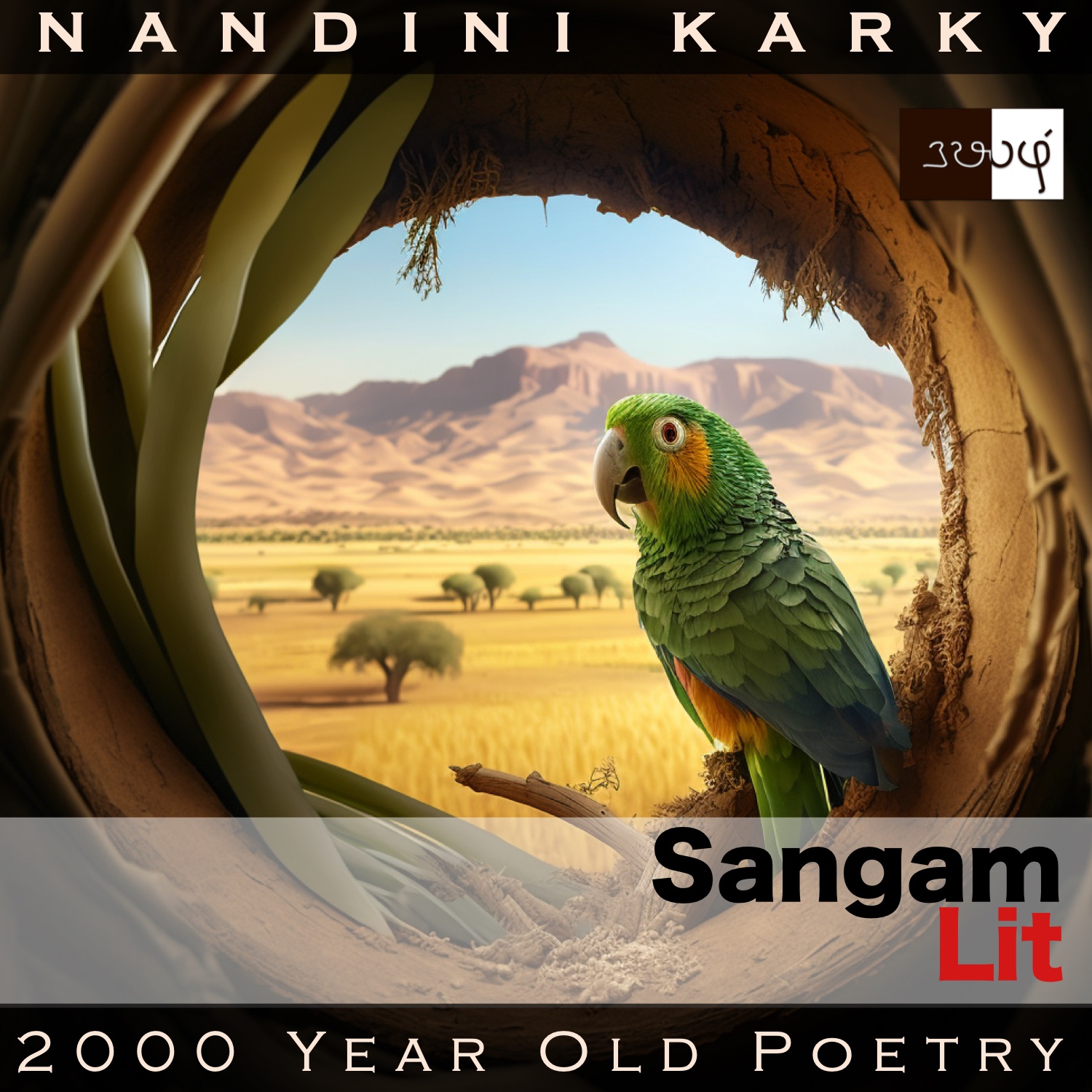Podcast: Play in new window | Download
Subscribe: Apple Podcasts | Spotify | Amazon Music | Android | iHeartRadio | TuneIn | RSS | More
In this episode, we listen to words of positivity rendered to a hopeful heart, as depicted in Sangam Literary work, Puranaanooru 138, penned about the Velir King Naanjil Valluvan by the poet Maruthan Ilanaakanaar. The verse is situated in the category of ‘Paadaan Thinai’ or ‘King’s praise’ and promises good things to come in the life of another.

ஆனினம் கலித்த அதர் பல கடந்து,
மானினம் கலித்த மலை பின் ஒழிய,
மீனினம் கலித்த துறை பல நீந்தி,
உள்ளி வந்த, வள் உயிர்ச் சீறியாழ்,
சிதாஅர் உடுக்கை, முதாஅரிப் பாண!
நீயே, பேர் எண்ணலையே; நின் இறை,
‘மாறி வா’ என மொழியலன் மாதோ;
ஒலி இருங் கதுப்பின் ஆயிழை கணவன்
கிளி மரீஇய வியன் புனத்து
மரன் அணி பெருங் குரல் அனையன் ஆதலின்,
நின்னை வருதல் அறிந்தனர் யாரே?
A different poet sings the praise of this Velir King. The poet’s words can be translated as follows:
“Crossing many roads packed with cattle herds, leaving behind many hills packed with deer herds, and swimming to many shores through streams packed with fish schools, with strong intentions, you arrived, O elder bard, having a resounding small lute, wearing torn and patched-up clothes! You seem to hope for great things. Your lord indeed is one who shall never say, ‘Come another day’. He’s the husband of that bedecked maiden with thick, dark tresses, and someone, who’s like a huge stalk of grain, taken from the vast millet field and saved in a tree hole by a parrot. When you return, who can even identify you?”
Let’s delve into the nuances here. The poet talks about how a certain person has crossed not just roads, where cattle jostled him for space, but also hills filled with frolicking deer and many rivers and seas densely packed with fish. An indication that particular person has crossed the different landscapes of ‘Mullai’, ‘Kurinji’ and ‘Neythal’ to come here to see this king. We learn that this person is an aged bard, who holds in his grasp, a small but powerful lute, capable of creating loud sounds, and is someone in an impoverished state, wearing torn clothes.
The poet tells the bard that true to the hopes the bard holds, the king will never send him empty-handed, asking him to come later. He then celebrates the king as being the husband of a bejewelled maiden with thick tresses and then brings in an intricate simile to describe the nature of this king. We have read in many Sangam verses from the ‘Kurinji’ or mountainous regions, about wide-spreading millet fields, which attract parrots many. But destroying the hopes of the parrot, Kurinji maiden wait to scare them away with their rattle devices. So, it’s really a rare thing for a parrot to find a stalk of grain. In such a situation, the poet imagines that the parrot has stolen away a huge stalk of grain from the field and stored it inside a tree hole. How precious would that millet stalk be to that parrot, that is the exact nature of the king, the poet implies. He concludes with the declaration that no one will be able to identify this impoverished and sad bard after he has met with the king for so changed will he be in his countenance and possessions! This reminds me of a quote attributed to Mother Theresa: “Let no one ever come to you without leaving better and happier.” While we cannot give away wealth and gifts like this Sangam king to make this a reality in our lives, perhaps a smile from the heart is all it takes!




Share your thoughts...